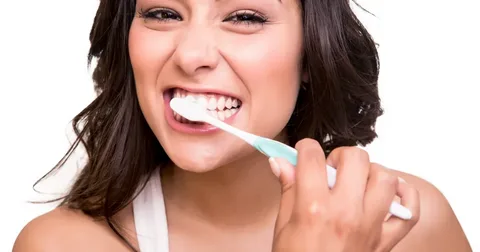Dental hygiene is not just about the look of your teeth or the brightness of your smile. It’s also directly connected to your overall health and wellbeing, with oral hygiene covering the health and care of your teeth, mouth, and gums so that you can eat, drink, and communicate normally.Â
Without good oral hygiene, you can encounter issues like tooth decay and gum disease, which are not just localised issues affecting the mouth, but which can spread and lead to health concerns as serious as diabetes and cancer.Â
Oral hygiene is, in short, integral to both your overall wellbeing and to the health of your mouth – and contributes towards a white and healthier smile, fresh bresh, and a healthier lifestyle.Â
With that said, how do you factor good oral hygiene into your everyday routine and what does a solid dental at-home care plan involve? Here are some of the most important areas of oral hygiene to focus on – and why regular and consistent care is the number one way of keeping gum disease and other dental concerns at bay.
What is oral hygiene?Â
Oral hygiene refers to the process whereby you maintain a healthy mouth, through various elements of a dental routine and care plan. With the main touchpoints of this routine outlined below, it’s crucial to recognise oral hygiene as the maintenance of a fresh and clean mouth, free from tooth decay, gum disease, and other issues.Â
What does a solid dental care routine involve?Â
The following are all important factors in maintaining your oral hygiene and ensuring that your teeth not only look their best but also feel their best. Remember that gum disease and the other more serious health concerns associated with poor oral hygiene do not occur overnight, but rather build-up over time if you continue to neglect your teeth, gums, and mouth.Â
Regular brushing
Brushing your teeth twice a day is the bare minimum that you should be doing as part of a solid dental care routine, using a toothpaste with fluoride to help reduce tooth decay and keep any signs of gum disease out of your mouth.Â
Most dentists and healthcare professionals recommend that you brush your teeth for two minutes before bed and at another point during the day, usually when you wake up so as to ensure you start your day with fresh breath and a gleaming smile. All surfaces of the tooth should be brushed.Â
Flossing
This is a part of the recommended dental care plan, which is so often overlooked yet is integral for removing food lodged between the teeth and helping to keep plaque away from the surface of each tooth. Best done before brushing, flossing involves running a length of floss between the teeth to access and clean the areas where your toothbrush cannot reach.Â
This is not only an effective way of keeping the space between your teeth clean, but also achieves a more thorough clean across the entire mouth.Â
Drinking water and eating a balanced diet
This seems to be the go-to advice for health and wellbeing on all levels, not just dental – however, when it comes to oral hygiene, what you eat and drink really can transform your smile. Drinking water helps to prevent plaque from sticking, while a healthy diet which is low in sugary food and drink helps to keep the teeth clean and free from decay.Â
Visit the dentist
You could have the best oral hygiene and maintenance routine in the world, but without regular visits to the dentist then you will find that any minor issues are left undetected and untreated. This is when more serious issues occur, as without early intervention a minor cavity or issue with your teeth can progress into something more severe.Â
Mouthwash
Last but not least, mouthwash is an excellent addition to your dental care routine – giving your breath a minty aroma and freshening up your mouth quickly and easily. Best used a while after brushing, to allow for the concentrated fluoride to work its magic on your teeth, mouthwash is an effective refresh – perfect for the middle of the day or after meals. Â
Are all of the above touchpoints a part of your own dental routine? Get in touch with your dentist for practical advice relating to your own oral hygiene, and to book your next check-up.Â
